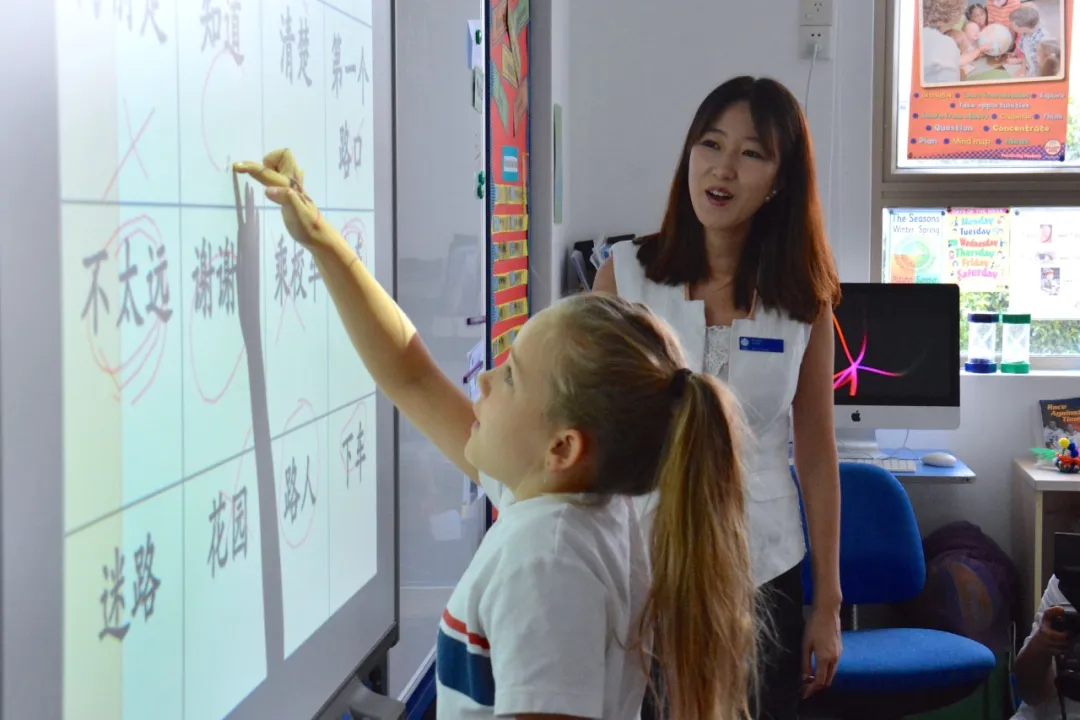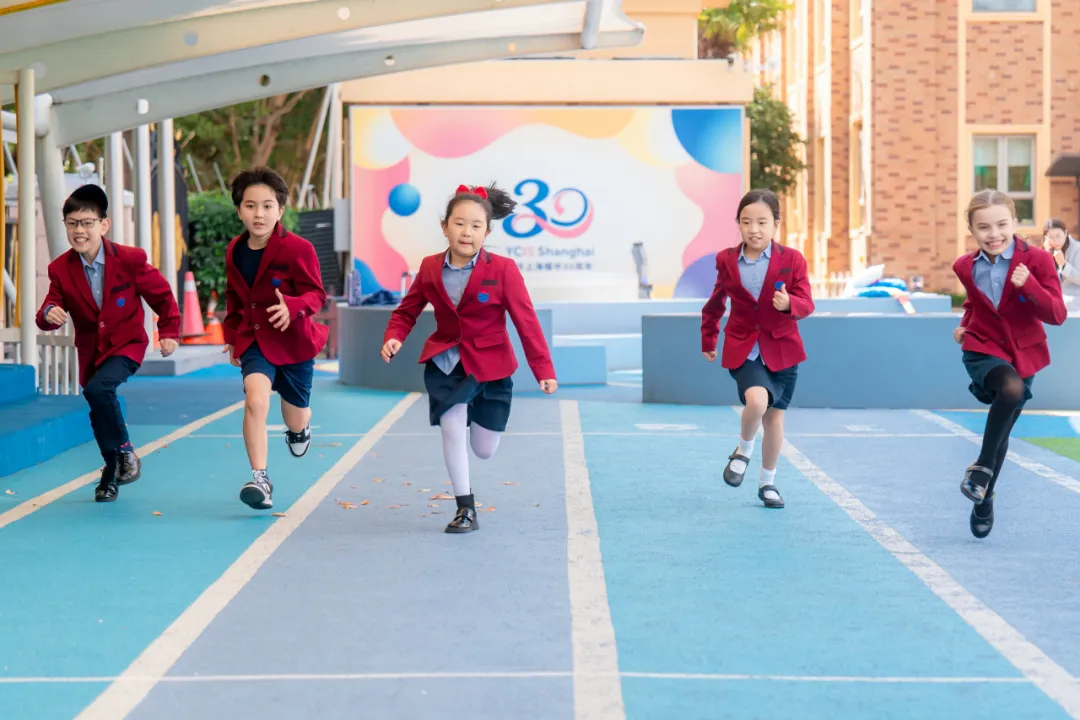Go Back
News
School News
Realising True Internationalism at YCIS
School News
29 Nov, 2024
13 : 48
True international education is not about one culture overshadowing another or even several others. Instead, it should allow diverse cultures to flourish, helping students understand and respect different cultures while enabling them to thrive in a multilingual, multicultural environment.
Since its founding, YCIS Shanghai has been committed to implementing true international education, creating an environment of inclusion and understanding.
Here, education goes beyond the mere transmission of knowledge; it is about cultural exchange and integration. Students not only learn English and Western culture but are also guided to explore the depth of Chinese culture, learning to view and understand their cultural roots from a different perspective.
YCIS Shanghai builds bridges between different cultures through diverse curricula and a wide range of extracurricular activities.
In the classroom, teachers use engaging methods to integrate Eastern and Western history, literature, and art, allowing students to learn through comparison and grow through reflection. We hope that as the children explore Chinese classical poetry, they can also appreciate the beauty of Shakespeare's sonnets; and while they learn about the threads of Chinese history, they can also share the fascinating stories of the Renaissance in Europe.
Outside the classroom, the school organises various cultural exchange activities, such as Community Day, International Food Festival, and Family Day, enabling students to experience the charm of different cultures firsthand and foster mutual understanding and friendship.
This week, we spoke with Andy Clapperton, Co-Principal of YCIS Shanghai Pudong, Li Li, Acting Vice-Principal of YCIS Shanghai Puxi, and the parents of Minna and Mancy, students who recently achieved excellent results in the Third Global Chinese Writing Competition for Young Writers. Here is their discussion of how YCIS Shanghai achieves a truly international education.
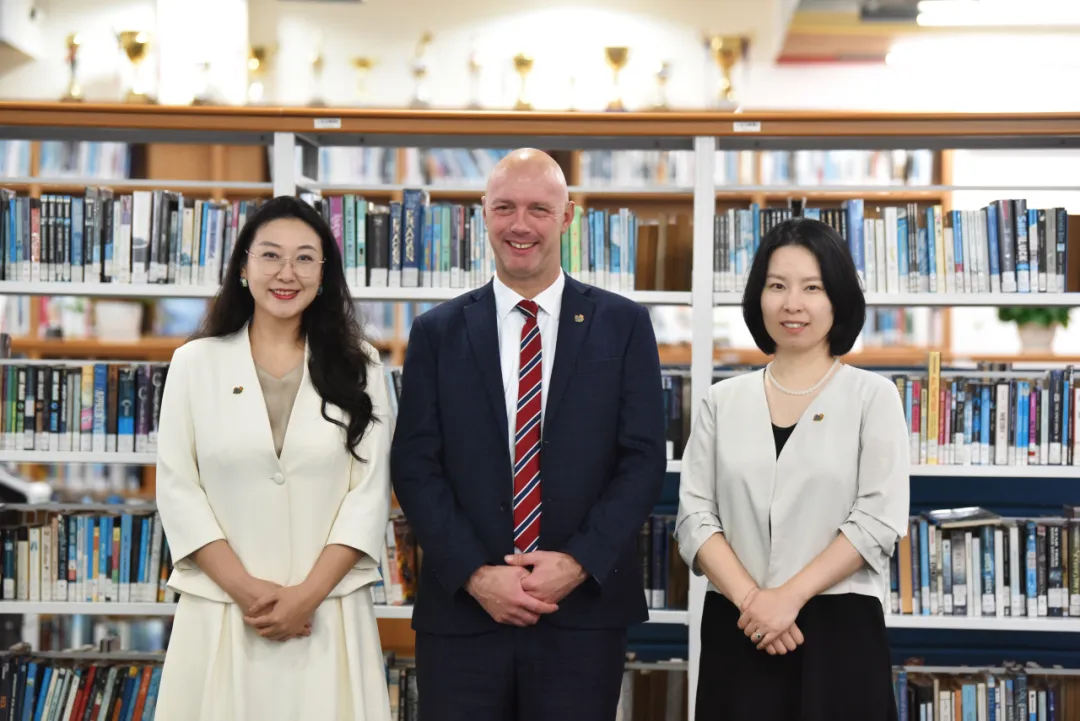
▼
How do you think YCIS Shanghai achieves internationalism in its education?
▲Andy: One of the unique selling points of YCIS is the Co-Principal model which permeates everything we do. It's not just about one country's education system; we genuinely embrace a wide range of perspectives. I serve as the Western Co-Principal, alongside a Chinese Co-Principal, and we adopt a true team approach in all our activities, extending right down to the classroom level.
In our ECE and Primary classes, we employ a co-teaching model that values and honours diverse perspectives and cultures. Unlike many international schools that have a class teacher with a Chinese teaching assistant, we ensure both roles are fully valued by having two fully qualified teachers in each class throughout ECE and Primary. Our leadership model consistently values both the Chinese and expat teachers.
To be truly international, you can't rely solely on one system. We offer a school environment where all cultures are genuinely valued, honoured, and promoted, forming an integral part of the school's DNA.
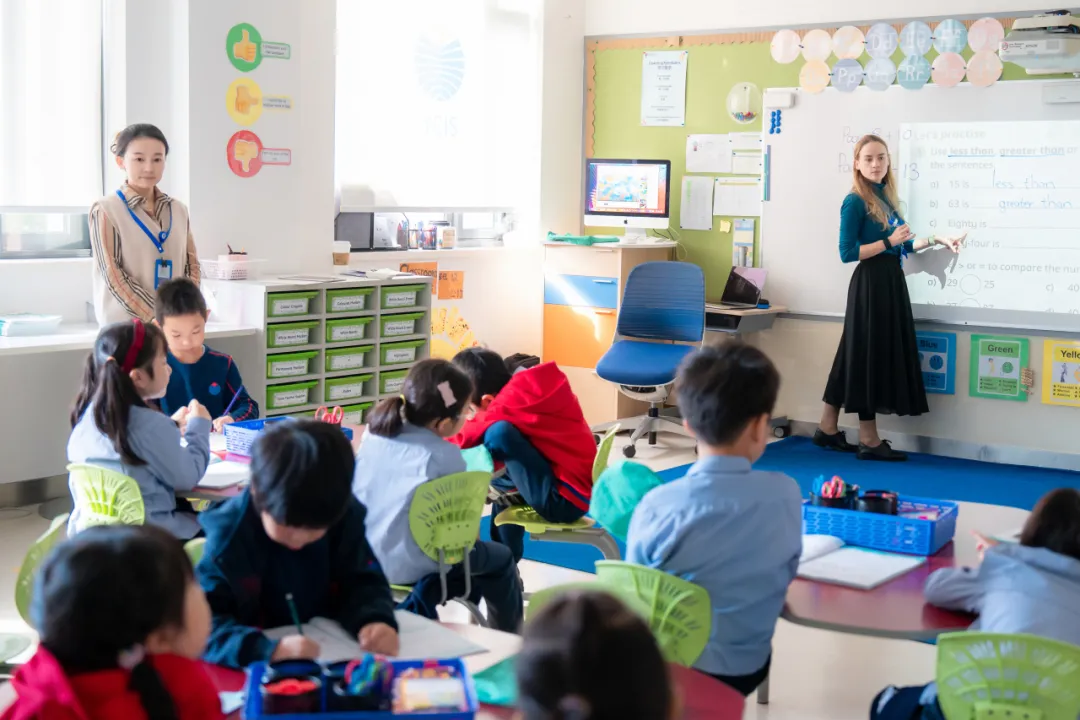
▼
Can you elaborate on how YCIS Shanghai integrates Chinese and Western cultural elements to ensure students deeply understand local culture while also engaging with and respecting international cultures?
▲Li Li: YCIS Shanghai skillfully integrates elements of both Eastern and Western cultures into its education system, ensuring that students gain a deep understanding of local culture while also being exposed to a wide range of international cultures.
YCIS provides a Chinese Language and Studies Programme, as well as international programmes like IGCSE and IB, which help students broaden their global perspectives.
A diverse team of teachers bring a wealth of cultural insights and unique teaching methods to the classroom. The school also regularly hosts various Eastern and Western festivals, such as celebrating Chinese New Year, Christmas, and Community Days, allowing students to experience the charm of multiculturalism and deepen their understanding and respect for different cultures.
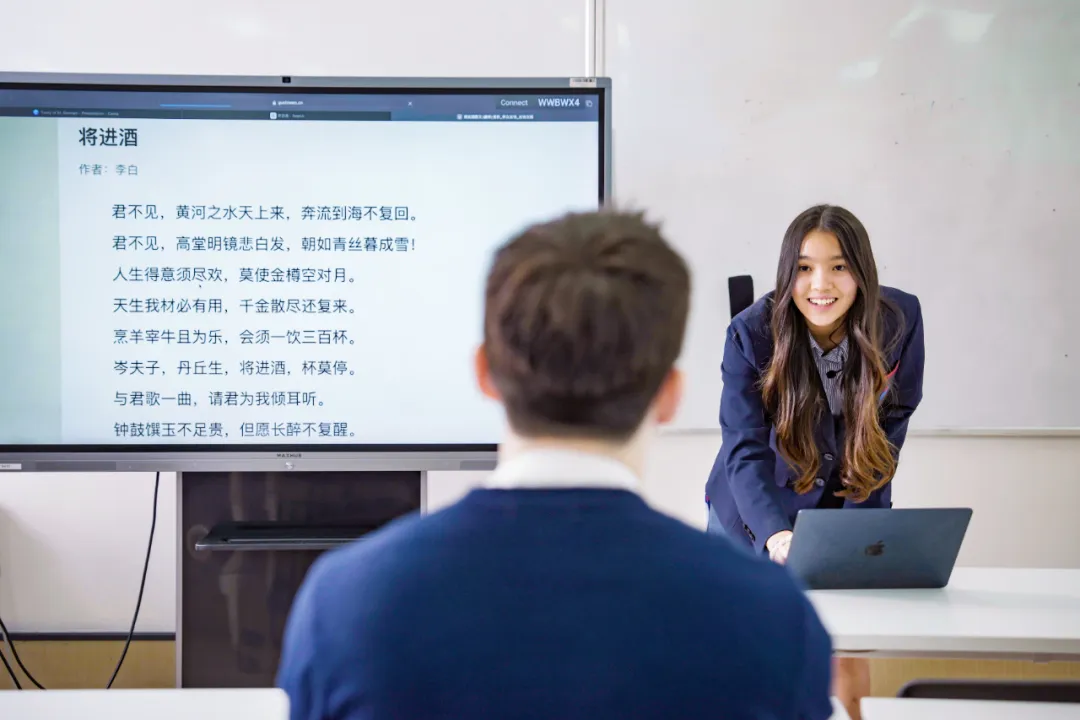
▼
In your observation or experience, what specific steps have the school taken to help students gain cross-cultural communication skills, and how have these positively impacted their personal growth and future development?
▲Li Li: The school employs a variety of initiatives to enhance students' cross-cultural communication skills, positively impacting their growth and future development.
In addition to offering bilingual courses in Chinese and English, the school provides Spanish language classes to help students understand and appreciate diverse cultures, laying a foundation for future international careers.
By participating in international exchange programmes such as Model United Nations (MUN) and World Scholar's Cup (WSC), as well as overseas study tours, students can experience different cultures firsthand and deepen their cultural understanding.
The curriculum incorporates multicultural elements, such as Project-Based Learning (PBL), exposing students to the values and customs of various cultures.
These measures not only improve students' cross-cultural communication skills but also cultivate their global perspectives and adaptability, which are crucial in a diverse society, whilst providing them with a unique competitive edge in their academic and professional pursuits.
▼
How can we balance different cultures on our campus?
▲Andy: As educators and role models, teachers must be intentional about bringing their best to the table. My Chinese counterpart, Sissy, and I have conducted leadership workshops with staff to explore the meaning of co-teaching and teamwork. The workshop focuses on building a supportive culture where teachers receive the respect and autonomy they deserve.
In different classes, you will never find a lesson that is copied and pasted, as each teacher brings their own approach and personality to their lessons. This creates a rich tapestry of diverse teaching styles.
In the real world, we're all working with people with different characters and personalities. Trusting teachers to create effective educational programmes in their own way gives them responsibility and confidence in their abilities. This culture of trust is what enables teachers to remain with us for a long time.
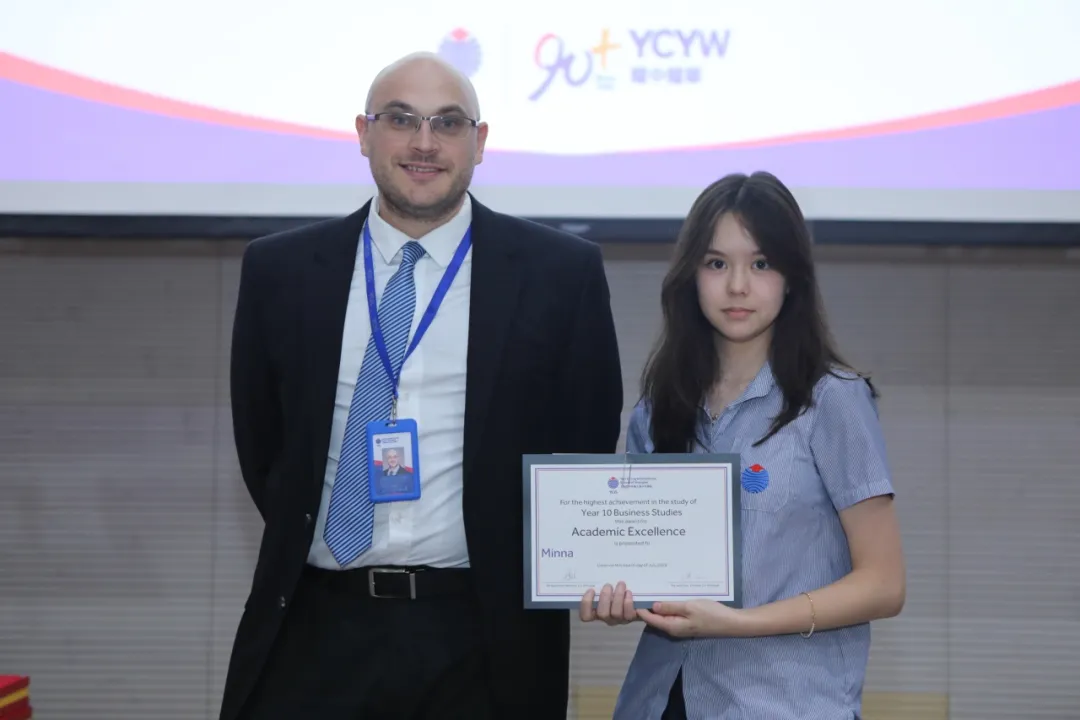
▼
How would you assess YCIS Shanghai's effectiveness in developing your child's cross-cultural communication skills?
▲Minna’s Father: From a diplomat’s perspective, global citizenship skills and the ability for cross-cultural communication are important assets. We believe that the multicultural environment in YCIS has paved the way for Minna to materialize these assets in her future life.
▲Minna’s parents: All in all, we believe that YCIS provides a positive environment for the development of intercultural understanding and encourages motivated students in their learning journey. Of course, we are lucky that our child has met good teachers with exemplary teaching experience and teaching methods, supporting Minna’s own strong abilities.
▼
How does YCIS help students develop the skills needed to thrive in a multicultural environment?
▲Mancy’s Mother: As a parent, I believe our school does an excellent job of helping children adapt to multicultural environments. With teachers from around the world, the school not only introduces diverse teaching methods but also brings various cultural perspectives. This allows children to learn and grow in a truly multicultural setting, which can't be taught through books.
Bilingual education in English and Chinese, along with other languages, benefits the children academically and enhances their language skills. I've noticed a significant improvement in their listening, speaking, reading, and writing in both English and Chinese.
In the future, I hope that more parents will take part in cultural activities at YCIS. By sharing their cultural backgrounds and experiences, parents can enrich the children's learning experience and offer them a broader cultural perspective.
